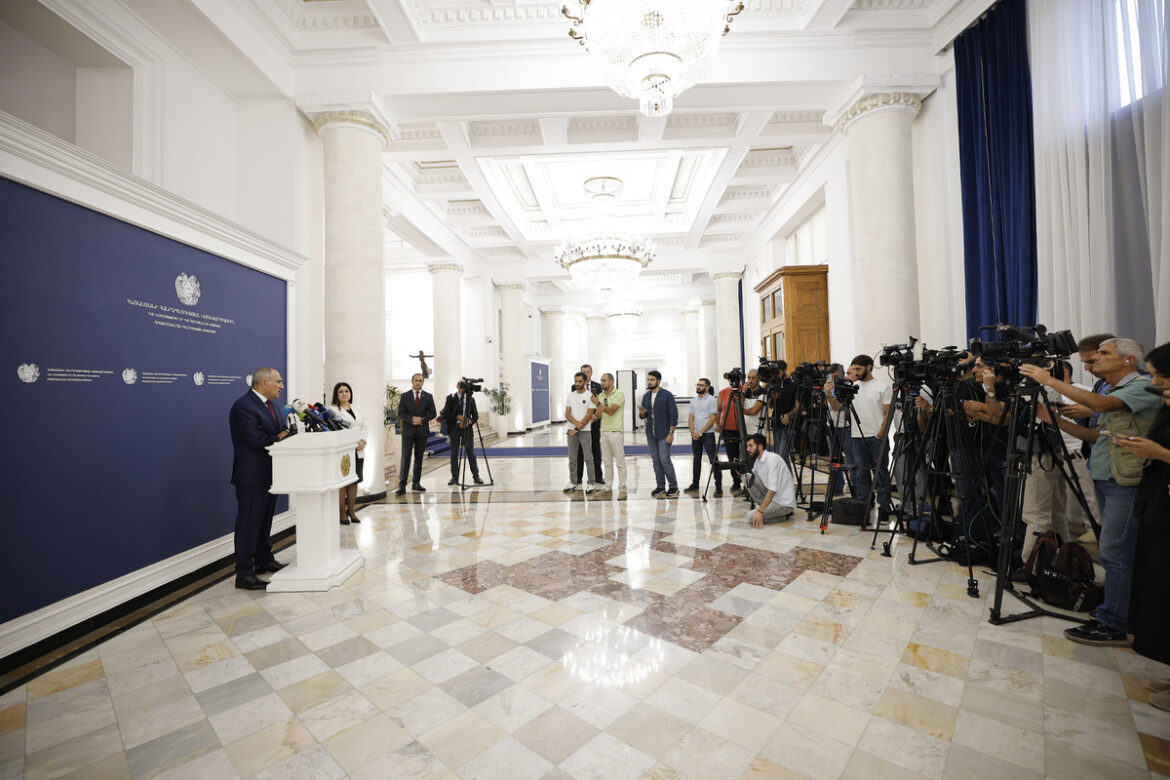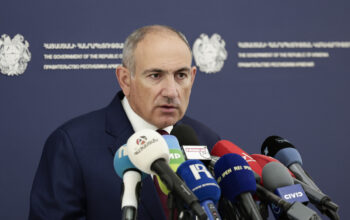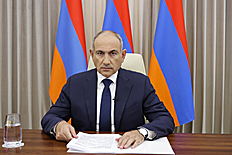Amid Azerbaijan’s continuing military buildup, the Armenian government has announced plans to halt the sharp annual increases in defense spending that followed the 2020 Artsakh war.
Armenia’s 2025 defense budget stands at 665 billion drams ($1.7 billion), a 20 percent rise from 2024 and roughly one-fifth of total state expenditures. By comparison, defense allocations in 2020 amounted to 341 billion drams, most of which were directed toward replenishing arms lost during the war.
Azerbaijan, meanwhile, is projected to spend about $5 billion this year on defense and national security — nearly triple Armenia’s outlays.
Prime Minister Nikol Pashinyan told reporters Thursday that this trend of rising defense budgets will not continue:
“I think that in our 2026 state budget we will probably have no substantial increase on defense expenditures or no increase at all,” he said.
Finance Minister Vahe Hovhannisyan added earlier this week that the government intends to reduce the share of defense spending within overall public expenditures in 2026, though he offered no specific figures. The full budget proposal is expected in late September.
The announcements come less than two weeks after Pashinyan and Azerbaijani President Ilham Aliyev initialed a peace treaty in Washington, during talks hosted by U.S. President Donald Trump. Pashinyan has since portrayed the agreement as the definitive end of the decades-long conflict.
His domestic critics, however, argue that Baku has not abandoned its hardline preconditions for peace and warn that the treaty does not preclude further Azerbaijani aggression.
Those concerns appeared to gain weight on Thursday, when Aliyev delivered fresh warnings that Azerbaijan will not hesitate to act militarily.
“If anyone’s sick mind thinks of provoking Azerbaijan, I think they will regret it again,” he said, describing Armenia repeatedly as an “enemy” while pledging to further strengthen his country’s armed forces.
The starkly different messages underscore the tension between the official narrative of peace advanced by Yerevan and the signals coming from Baku. While the Armenian government speaks of “peace established,” Azerbaijan continues to frame Armenia as a hostile power and maintains a policy of military deterrence.
Pashinyan, nevertheless, congratulated his cabinet this week on what he called the achievement of peace with Azerbaijan, emphasizing that the conflict is “over.”




